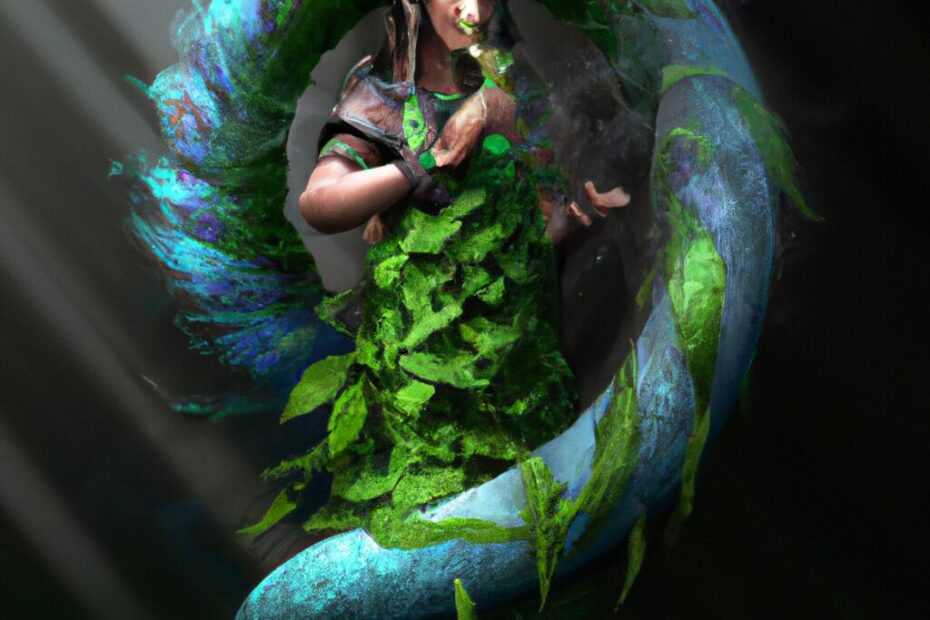Salvia, a psychoactive plant native to Mexico, has gained attention for its mind-altering properties. In this article, we will delve into the legal landscape of Salvia in Washington, exploring the federal and state laws governing its possession and sale. We will examine the potential health risks associated with its use, including the possibility of addiction, hallucinations, paranoia, and physical side effects. We will explore alternatives to Salvia, including legal substitutes and natural options, offering insight into achieving a similar high without resorting to prohibited substances. Join us as we navigate the complex terrain of Salvia legality in Washington and the potential repercussions of its use.
What is Salvia?
Salvia, also known as Salvia divinorum, is a psychoactive plant with mind-altering effects that has been used as a herbal remedy for centuries.
Its history can be traced back to the Mazatec people of Mexico who used it in traditional spiritual ceremonies for its hallucinogenic properties. The psychoactive compound in Salvia, salvinorin A, is known for its potent effects on perception, producing intense hallucinations and altered states of consciousness when consumed.
Despite its traditional use, it is important to note that Salvia is classified as a controlled substance in many countries due to its psychoactive nature. This unique plant continues to intrigue researchers and enthusiasts alike, as its psychoactive properties continue to be studied and understood.
Is Salvia Legal in Washington?
The legality status of Salvia in Washington is subject to specific rules and regulations established by the state law, determining whether its usage is permitted or classified as a controlled substance.
What are the Federal Laws Regarding Salvia?
The federal laws and regulations regarding Salvia encompass enforcement mechanisms and jurisdictional authorities that define its legality at a national level.
These laws fall under the jurisdiction of various federal agencies, such as the Drug Enforcement Administration (DEA) and the Food and Drug Administration (FDA), which oversee the regulation and enforcement of controlled substances. The Controlled Substances Act (CSA) is the primary federal law that classifies substances like Salvia into different schedules based on their potential for abuse and accepted medical use. The Federal Analog Act prohibits the possession and distribution of substances that are similar in chemical structure or effect to controlled substances, providing a wide scope for enforcement against emerging and modifying substances like Salvia.
What are the State Laws Regarding Salvia in Washington?
In Washington, the state laws governing Salvia dictate its legality status, encompassing specific legislation that determines its permissible usage, possession, and sale.
Salvia divinorum is classified as a controlled substance in Washington, making its possession, distribution, and sale illegal. The state has established strict regulations to control the use of Salvia, with penalties for violation.
Washington law prohibits the sale of Salvia to minors and imposes penalties for those who disregard this provision. It is essential for individuals in Washington to be aware of the state-specific laws related to Salvia to avoid potential legal consequences.
What are the Penalties for Possessing or Selling Salvia in Washington?
The penalties for possessing or selling Salvia in Washington are accompanied by specific restrictions and consequences outlined in the state laws, reflecting the legal repercussions of unauthorized usage or distribution.
Under Washington law, possession of Salvia is classified as a misdemeanor, with potential penalties including fines and imprisonment. Selling or distributing Salvia can result in more severe consequences, such as felony charges, significant fines, and lengthy imprisonment.
Individuals found guilty of unauthorized activities involving Salvia may face detrimental legal and social ramifications, impacting their personal and professional lives. It is essential for individuals to familiarize themselves with the laws governing Salvia possession and distribution in Washington to avoid these grave repercussions.
What are the Health Risks of Using Salvia?
Using Salvia carries inherent health risks due to its mind-altering properties and classification as a psychoactive drug, necessitating precautions and awareness of potential adverse effects.
Can Salvia Cause Addiction?
The potential for Salvia to cause addiction revolves around its psychoactive effects and patterns of usage, raising concerns about its addictive properties and behavioral impact.
Salvia’s psychoactive effects, especially its ability to induce altered states of consciousness, have led to its recreational use, often in social settings. Its rapid onset and short duration contribute to its appeal among certain individuals. The potential for developing a psychological dependence on Salvia has also been a subject of research and debate within the scientific community, highlighting the need for further understanding of its addictive potential and the behavioral impact it may have on users.
Can Salvia Cause Hallucinations?
Salvia’s mind-altering and psychoactive nature raises the possibility of inducing hallucinations, emphasizing the potential for perceptual distortions and altered sensory experiences.
These hallucinations can manifest as vivid and intense visual or auditory distortions, leading to a temporary altered state of consciousness. The altered sensory experiences brought about by salvia can be profound, with users reporting a heightened perception of colors, sounds, and textures. Such effects can result in a sense of detachment from reality and a distortion of time and space, creating an otherworldly experience for the user.
Can Salvia Cause Paranoia?
The psychological effects of Salvia may lead to paranoia, highlighting the potential for heightened anxiety and unfounded fears as part of its risk profile.
This heightened state of anxiety can result in individuals experiencing irrational thoughts and feelings of persecution, even in safe and familiar environments. The altered perception and distorted sense of reality induced by Salvia can contribute to a sense of losing control, further intensifying feelings of paranoia. These psychological effects may persist beyond the immediate experience, impacting an individual’s mental well-being and daily functioning.
It is crucial to consider the potential for heightened anxiety and unfounded fears when assessing the risks associated with Salvia use.
Can Salvia Cause Physical Side Effects?
Using Salvia can lead to physical side effects that pose health risks, underscoring the importance of taking precautions and being aware of potential bodily manifestations.
These physical side effects may include:
- dizziness
- nausea
- increased heart rate
- changes in blood pressure
It is crucial for individuals considering the use of Salvia to be mindful of these potential manifestations and take necessary precautions, such as consulting a medical professional and using the substance in a safe and controlled environment.
Being informed about the possible bodily reactions and understanding the potential health risks is essential for promoting responsible and safe usage of Salvia.
What are the Alternatives to Salvia?
In lieu of Salvia, individuals may explore legal alternatives that offer similar herbal remedy benefits without the mind-altering properties associated with psychoactive substances.
Are There Legal Substitutes for Salvia in Washington?
Washington may offer legal substitutes for Salvia that comply with state regulations, providing alternative herbal remedies without the legal restrictions associated with psychoactive substances.
These legal substitutes align with Washington’s strict regulations on psychoactive substances, ensuring that consumers have access to safe and legal alternatives. Herbal remedies such as passionflower, kava, or blue lotus are popular choices that are readily available in the state. They provide natural relaxation and mood-enhancing effects without the legal ramifications associated with Salvia.
By offering these alternative options, Washington strives to promote responsible use of herbal remedies while maintaining compliance with state laws governing psychoactive substances.
What are the Natural Alternatives to Salvia?
Natural alternatives to Salvia encompass a range of herbal remedies that offer comparable effects without the psychoactive properties, catering to individuals seeking non-psychoactive solutions.
These natural alternatives include herbs such as lavender, chamomile, and passionflower, which are known for their calming and relaxing effects. Many individuals find these herbal remedies to be gentle yet effective in promoting relaxation and reducing stress without causing any psychoactive effects.
These herbal alternatives are often used in aromatherapy, teas, and supplements, providing various convenient methods for individuals to incorporate them into their wellness routines. With their natural origins and non-psychoactive properties, these herbal options offer a holistic approach to achieving relaxation and tranquility.
What are the Legal Ways to Achieve a Similar High to Salvia?
Legal methods to achieve a similar high to Salvia may involve exploring herbal remedies that offer euphoric experiences without the mind-altering properties typically associated with psychoactive substances.
These herbal remedies often contain natural compounds that can induce feelings of relaxation, happiness, and euphoria without causing hallucinations or impairing cognitive functions. Some popular options include Kava, Kratom, and Blue Lotus, which have been traditionally used for their mood-lifting and stress-relieving effects.
By understanding the legal implications and potential risks associated with these herbal remedies, individuals can responsibly explore alternative means of achieving euphoric experiences without resorting to illicit or harmful substances.
Frequently Asked Questions
Is Salvia legal in Washington?
-
1. Is Salvia considered a controlled substance in Washington?
No, Salvia is not currently classified as a controlled substance in the state of Washington.
-
2. Can I buy Salvia in Washington?
Yes, Salvia can be purchased legally in Washington as it is not classified as a controlled substance.
-
3. Is it legal to possess Salvia in Washington?
Yes, it is legal to possess Salvia in Washington as it is not a controlled substance.
-
4. Are there any restrictions on purchasing or possessing Salvia in Washington?
No, there are currently no restrictions on purchasing or possessing Salvia in Washington.
-
5. Can I use Salvia in public in Washington?
While Salvia is legal to possess and use in Washington, it is recommended to use it in the privacy of your own home to avoid any potential legal issues.
-
6. Is it legal to sell or distribute Salvia in Washington?
Yes, it is legal to sell or distribute Salvia in Washington as it is not classified as a controlled substance.
John Marston, a seasoned writer since 2009, has penned hundreds of articles on Salvia Divinorum across the web. As a full-time writer at a prominent online salvia retailer, he continues to contribute valuable insights, combining expertise and passion to unravel the diverse facets of Salvia Divinorum. Beyond his writing, John serves as a budtender in the cannabis industry.




